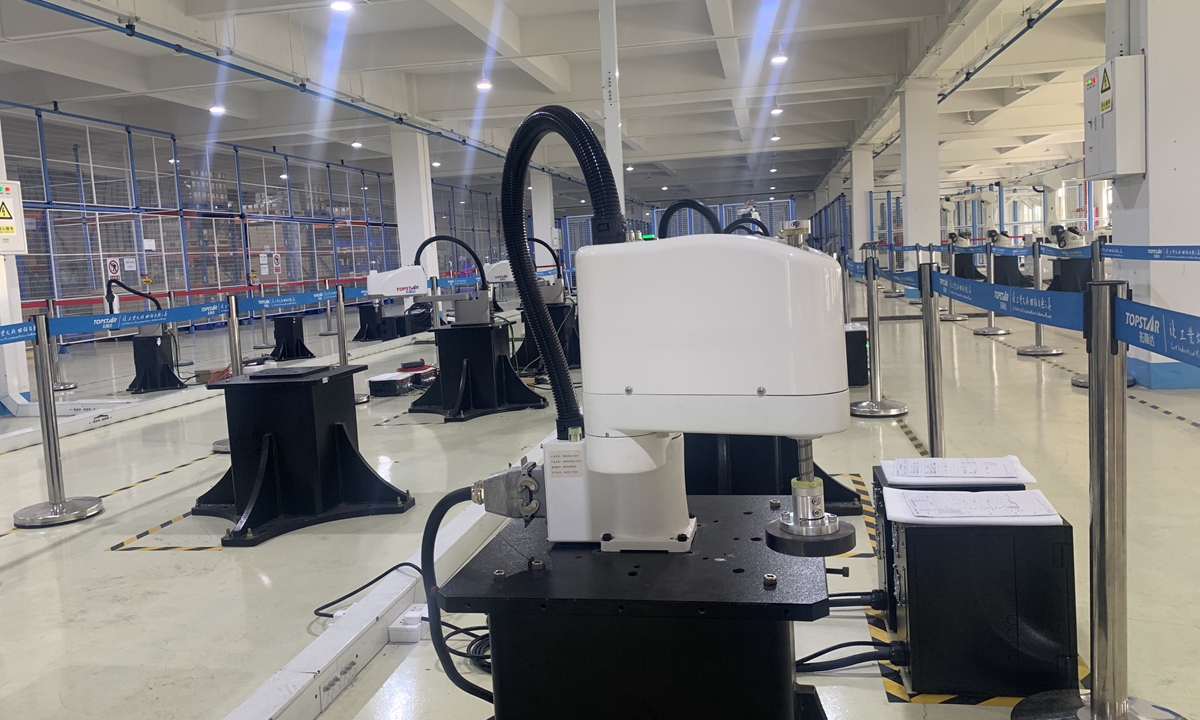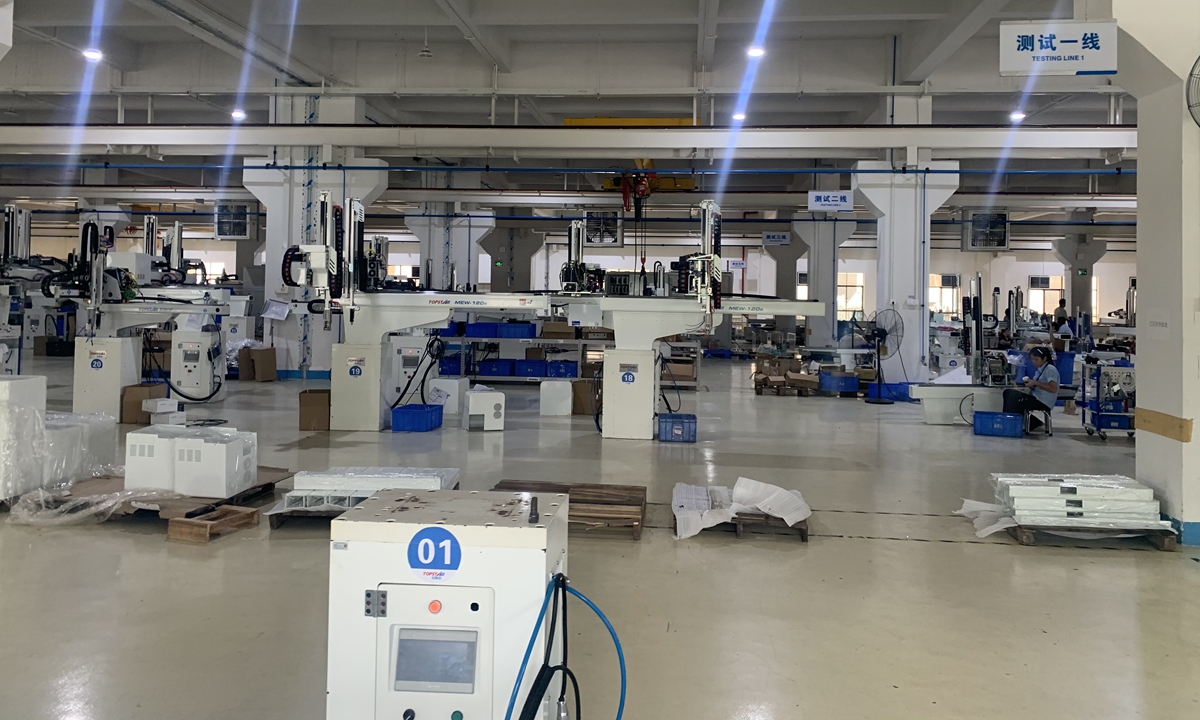SOURCE / INDUSTRIES
Huawei crisis 'warning bells' for China's high-tech supply chain

A robotic arm manufacturer in Dongguan, South China’s Guangdong Province, displays some products for testing. The factory, like many other Chinese tech companies, is now stepping up efforts to accelerate its self-developed technologies. Photo: Chen Qingqing/GT
In the areas neighboring Huawei's research and development base in Songshanhu of Dongguan, South China's Guangdong Province, it was not hard to find a range of high-tech companies thriving on booming digital services amid COVID-19. But for some industry representatives in the high-tech sector, it's hard to turn a blind eye to what Huawei has been experiencing in recent days amid a heightened US-China tech war.
"It's never been more urgent for us to make breakthroughs in core technologies," a supplier of Huawei, located miles away from Huawei's R&D base and producing components for telecom equipment like base station and fiber-optic network, told the Global Times on Wednesday.
Wednesday was also the second day of the latest US ban to cut off chip supply to Huawei, which apparently became an unavoidable topic among engineers, technicians and employees over the lunch break or coffee time in industrial parks in Dongguan, home to hundreds of factories making various types of products ranging from raw materials to components for electronic gadgets.
At the factory supplying key components for Huawei for building 5G base stations and fiber-optic networks, workers wearing dust-proof suits focused on delicate work with the help of self-developed machines. "90 percent of our technologies are homegrown, and for the remaining 10 percent we need to depend on foreign firms, like US tech firm Intel," a senior manager of this factory who preferred not to be identified told the Global Times on Wednesday.
He also did not want to disclose the identity of the factory as it also provides some highly sensitive materials for major aerospace and key infrastructures.
"The whole industry now is working around the clock to break the US blockage. This sense of urgency will surely help speed up progress," he said.
Chinese leaders, officials and top Chinese science and technology institutes have intensively called on making technological breakthroughs on a series of core technologies in recent days as more industry representatives see the Huawei crisis "a warning shot" that fully exposed the vulnerability of China's high-tech growth.
Bai Chunli, president of the Chinese Academy of Sciences, also suggested on Wednesday to turn technologies mentioned in US Entity List into China's future scientific research layout, for example, development of key raw materials and mask aligner for making chipset.

A robotic arm manufacturer in Dongguan, South China’s Guangdong Province, displays some products for testing. The factory, like many other Chinese tech companies, is now stepping up efforts to accelerate its self-developed technologies. Photo: Chen Qingqing/GT
When Chinese Vice Premier Han Zheng visited Wuhan from Monday to Tuesday, a city hard-hit by the coronavirus outbreak, he also urged focusing on making breakthroughs on core technologies in confronting "cut-throat" battle, and increasing self-reliance in supplies of fundamental materials.
For some Chinese tech companies that have been expanding in overseas markets for decades, it's time now to accelerate the "de-Americanization" campaign while playing down their "roots in China", given the Trump administration's campaign to target more Chinese tech firms such as WeChat and ByteDance, TikTok's parent company, amid escalating US-China tech war.
"We are now further localizing our business in foreign markets by setting up regional headquarters, moving both R&D centers and production lines to countries like Thailand and Brazil," a representative from a Dongguan-based biometric verification technology provider surnamed Wu told the Global Times on Thursday.
Offering facial scan and other secure access tools to small and medium-sized enterprises, the company is not exactly the same as other Chinese surveillance companies such as Hikvision and Dahua. However, the yearlong crackdowns on those Chinese firms have forced it to come up with long-term plans on both technology and business fronts.
"Our core technologies are now 100 percent self-developed, and we will continue investing 15 to 20 percent of our revenues in R&D," Wu said.
It's also important to partially reduce reliance on the supply chain in China. For extreme situations, Chinese firms need to find alternative plans by redirecting their raw materials and components to ensure stability of supplies amid US pressure, the senior executive said.
In order to reduce the reliance on US technologies such as core chipsets, more Chinese tech firms are now seeking to enhance partnership with companies in countries and regions such as South Korea, Japan and the island of Taiwan, according to some industry representatives in Dongguan.
"The next six months and a year would be very difficult for some firms, for example, the ban on chipset would severely affect not only upstream firms like HiSilicon [chipset division of Huawei] but also downstream companies, but we'll get through it," Wu said.

